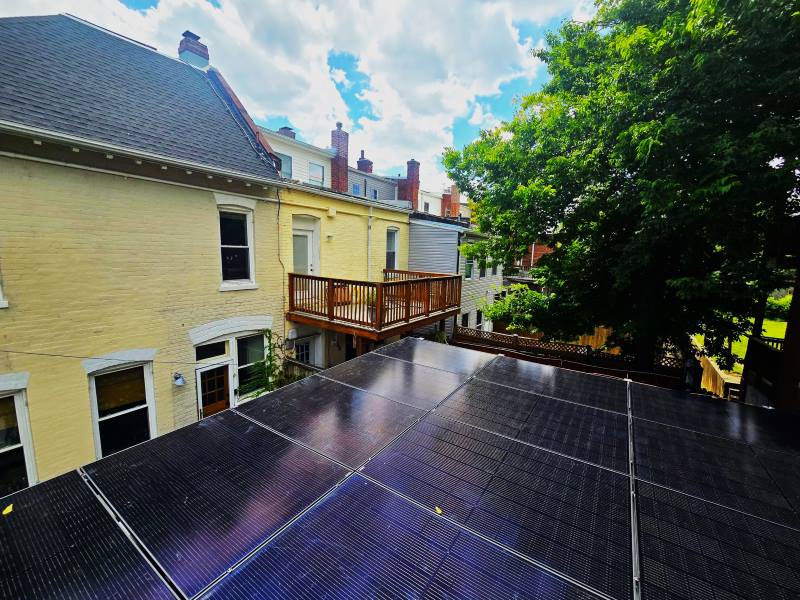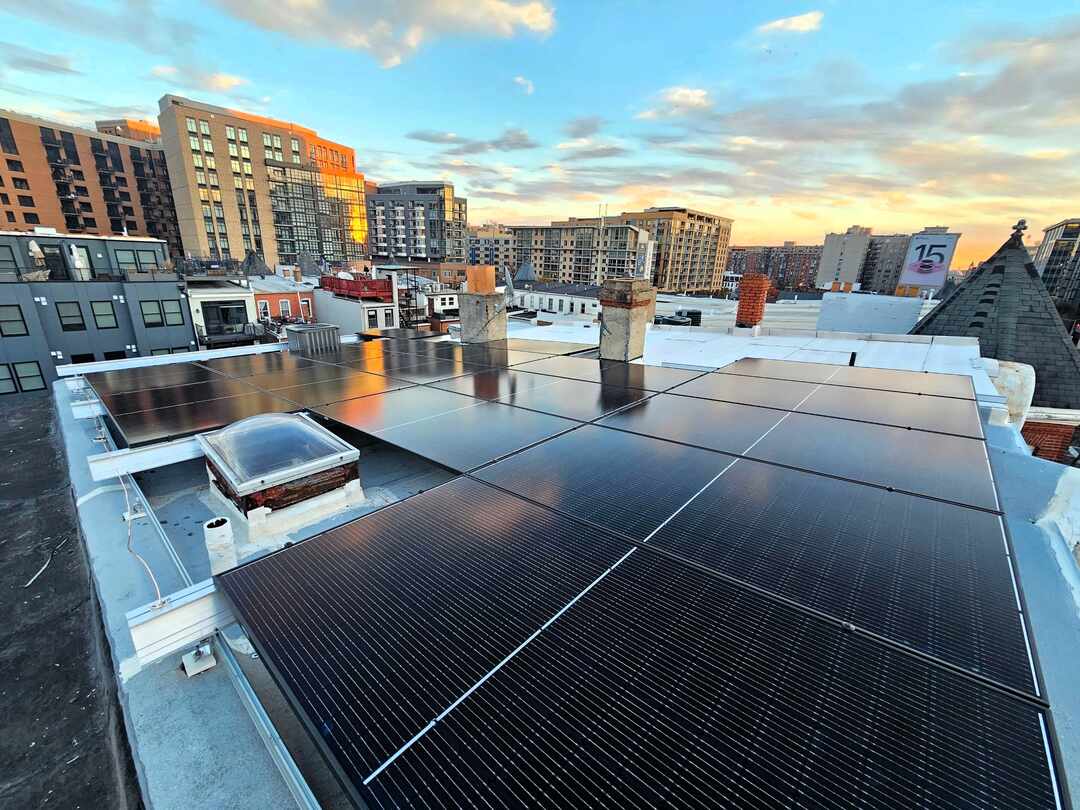Solar 101
How Does Solar Work?
Embark on a journey toward energy independence and environmental consciousness with Uprise Solar. Go behind the scenes with solar energy and learn how it can revolutionize your approach to electricity consumption.
Photovoltaic cells absorb sunlight

Sunlight to Electricity
The journey of sunlight to electricity begins with the photovoltaic cells within solar panels. These cells absorb sunlight, causing the release of electrons and the creation of an electric current. This direct current is then sent through an inverter, which transforms it into alternating current (AC)—the type of electricity used in homes and businesses.
This converted electricity can now power appliances, lighting, and other electrical devices within the property. The surplus energy generated can be stored in batteries for later use or fed back into the grid, contributing to a more resilient and sustainable energy infrastructure.
Solar Energy System Components
To truly comprehend how solar panel systems function, it’s essential to explore their key components. Solar systems typically consist of:
Solar Panels
The primary energy-generating components that capture sunlight and convert it into electricity.
Inverters
Devices that convert the direct current (DC) produced by solar panels into usable alternating current (AC).
Mounting and Racking Systems
Structures that securely hold solar panels in place, optimizing their exposure to sunlight.
Batteries
Optional components that store excess energy for later use, providing a backup during periods of low sunlight.
Monitoring Systems
Tools that allow users to track energy production and system performance.
Grid Connection
Solar installations can be grid-tied, meaning they are connected to the local electricity grid. Excess energy generated by the solar system can be fed back into the grid, and when the solar system produces less energy than needed, electricity from the grid supplements the shortfall.
This two-way interaction between solar systems and the grid contributes to a more balanced and reliable energy infrastructure. It also allows individuals to take advantage of net metering programs, to receive credits for the excess energy they contribute to the grid, further enhancing the economic benefits of solar energy.
Receive credits for the excess energy sent to the grid

Advantages of Solar Energy
Learn about the potential savings and benefits solar offers.
Cost Savings
One of the most compelling advantages of solar energy is the potential for significant cost savings on energy bills. Solar power systems generate electricity from sunlight, reducing reliance on electricity from the grid and, consequently, lowering monthly energy expenses. Over time, the initial investment in a solar system pays off as users enjoy reduced or even eliminated electricity bills, making solar a financially savvy choice for homeowners and businesses alike.
Environmental Impact
Adopting solar power has far-reaching positive effects on the environment. By generating electricity from sunlight instead of burning fossil fuels, solar energy significantly reduces greenhouse gas emissions, mitigating the impact of climate change. The use of solar power contributes to cleaner air, water, and soil, fostering a healthier and more sustainable planet for current and future generations.
Incentives and Rebates
Governments at the federal, state, and local levels recognize the importance of transitioning to renewable energy sources and often provide incentives and rebates to encourage solar adoption. Federal tax credits, state rebates, and other financial incentives can significantly offset the initial costs of installing a solar power system, making it more accessible and attractive to a broader audience. Understanding the various incentives available empowers individuals to make informed decisions about investing in solar energy and maximizes the financial benefits of their solar installations.
Property Value Increase
Beyond immediate financial benefits, a solar installation can enhance the value of your property. Homes and businesses with solar power systems are often viewed as more attractive, energy-efficient, and environmentally conscious, making them more appealing to potential buyers. Studies have shown that properties with solar installations tend to sell faster and at a premium compared to those without, offering a tangible return on investment. Understanding how solar energy positively impacts property value adds another layer of motivation for individuals considering solar installations, both for personal and financial gain.
Start Earning Solar Savings

Ready to Power Up Your Future with Solar Energy?
Discover the potential of clean, sustainable energy by connecting with Uprise Solar. Whether you are already on board or simply curious about solar solutions, we’re here to guide you on your journey toward a greener tomorrow.
Schedule a complimentary consultation with our solar experts to learn more or tailor a solution that meets your unique needs. We have the expertise to transform your energy landscape. Connect with Uprise Solar today and take the first step towards a more sustainable, energy-efficient future.
See How Much You Could Save
Begin your journey by entering your current energy bill, and unveil the potential savings waiting for you. Discover the power of solar, understand the financial benefits, and take the first step towards a sustainable and economical energy solution.
*We’ll use this information to calculate your savings.
